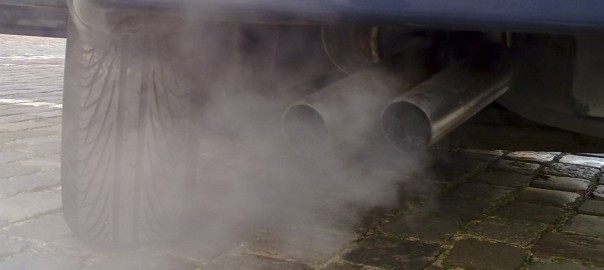A 2013 MIT study concluded that in the United Kingdom more people suffer premature deaths from breathing in auto emissions than from auto accidents
Back in the 1980s, I interned at the EPA. An older employee told a story of a public hearing to illustrate how Americans are confused in their thinking about risk. The EPA was proposing a cleanup solution for a toxic waste dump which would reduce risk of premature death down to one in one million residents.
A local resident stood up and passionately argued that any risk was unacceptable, no matter the cost. “EPA has to reduce risk to zero,” she exclaimed to rousing applause.
Following the hearing, she went outside and lit up a cigarette – increasing her risk of premature death much greater than living next to this superfund site.
Americans are great at hating some risks and ignoring others.
One risk that we have collectively ignored is the health impact of automobile emissions.
Where there is combustion, there are bi-products which severely impact the human respiratory system. These emissions can cause coughing, lung irritation, lung cancer and cardiovascular disease. They can cause or contribute to premature death in the young, the elderly and individuals with respiratory issues, such as asthma, as well as cause pulmonary problems in developing fetuses.
Cars are a significant source of these pollutants. In a number of states, including my home state of New Jersey, car and truck emissions are the largest source of air pollution – greater than the power sector or industry. And in all states, pollution is elevated close to roads. The US EPA, asserts that the concentration of Nitrogen Oxide is 30 to 100 percent greater closer to highways.
So how dangerous are these emissions? Probably greater than you think.
A 2013 MIT study concluded that in the United Kingdom more people suffer premature deaths from breathing in auto emissions than from auto accidents. Closer to home, the California Air Resource Board estimates that more than 9000 California deaths a year are caused by air pollution from cars and trucks. And the American Lung Association and Environmental Defense Fund released a study in May that argues that a transition to electric cars in California would prevent 600 heart attacks and 38,000 asthma attacks annually in that state alone.
Read more: Energy Biz
